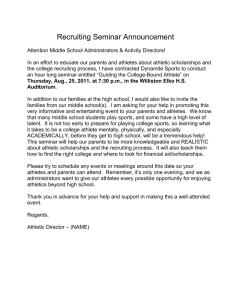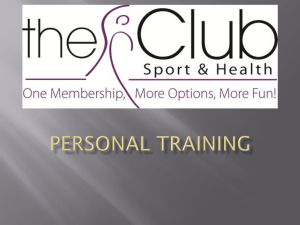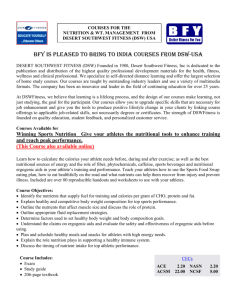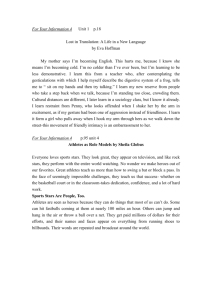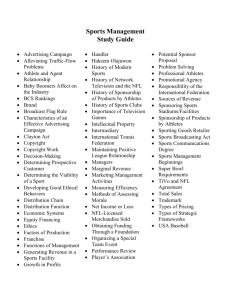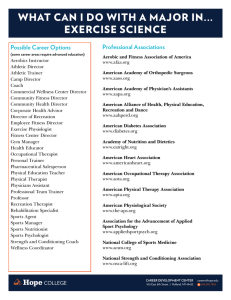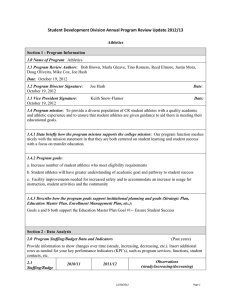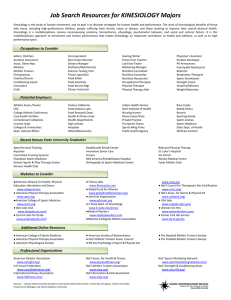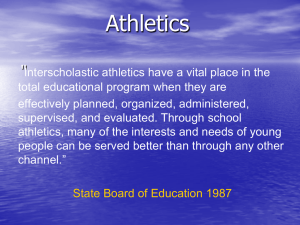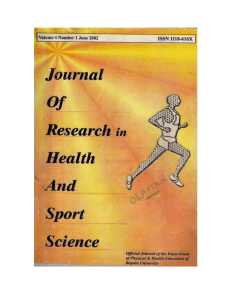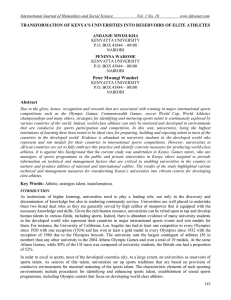Introduction to Sports Medicine
advertisement
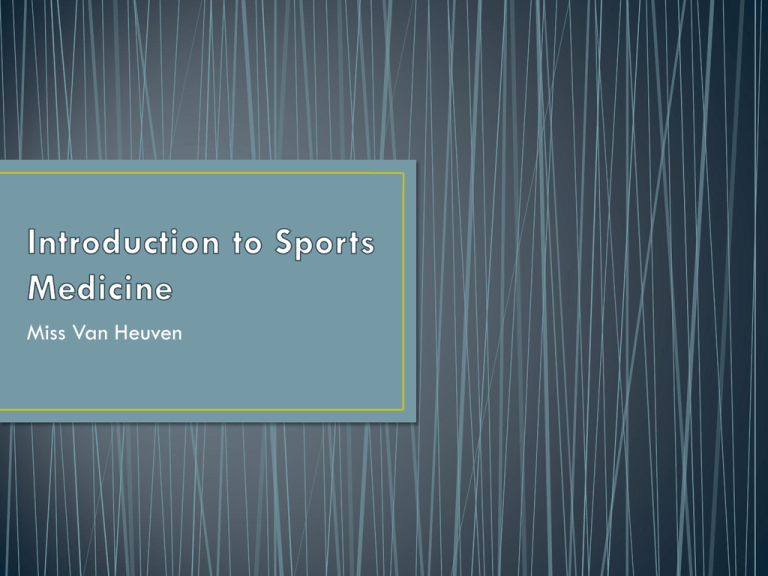
Miss Van Heuven • Sports Medicine = the branch of health care that deals with illnesses and injuries resulting from participation in sports, athletic activities, or unpredictable accidents • Sports medicine professionals work primarily with athletes • Athletes vary in age, sport, experience, and skill level • Disciplines required for sports medicine: • • • • • • • Anatomy Physiology Strength Training Injury prevention, diagnosis, and treatment Psychology Nutrition Knowledge of sports and athletic activity • Athletic Training • Deals with prevention, diagnosis, and treatment of athletic injuries and the management of training methods • Works with professional or amateur athletes and the general active population • Taping and Bracing • Supporting the joints to speed the healing process • Compression to help limit/reduce swelling • Therapeutic Modalities • The use of heat, cold, or electrical stimulation to produce an increase or decrease in blood flow • Strength and Conditioning Specialist • Evaluates current level of fitness and athleticism • Goal is to help individual/team increase strength and power while promoting a healthy lifestyle • Physical Therapist • • • • Help those who are injured to increase movement and decrease pain Main goal = return patient to physical abilities present before the injury Deal with people of all ages, including the elderly Do NOT deal primarily with athletes • Physical Therapy Assistant • 2 years associates degree • Involved in clinical tasks such as patient care and recording treatments • Under the supervision of a Physical Therapist • Professional Fitness Trainer (aka Personal Trainer) • • • • Works one-on-one with individuals Assesses client’s current fitness status and develops a fitness plan Guides client through every step of fitness plan until goals are met Does NOT only work with athletes • A customized plan designed to help your client: • Become physically capable of accomplishing a goal • Ex: run a marathon • Adjust body weight • Increase speed, power, strength, endurance, agility, or coordination • Learn how to lead a healthy life and enjoy physical activity • Should not cause any undue physical stress or pain • Sports Nutritionist • Specializes in developing proper nutrition plans for athletes • Works to ensure athlete maintains proper weight, nutrient, and energy levels • Must be aware of substance rules and regulations • Sports Psychologist • Improve athletic performance and increase motivation through psychology • Help the athlete to improve focus and decrease anxiety • Help athletes “get over losses” • Ex: Baseball pitcher • Go to the following website: • http://kine.csusb.edu/documents/Exercise_Science_Careers.pdf • Read the summaries regarding career opportunities in the field of Sports Medicine • Then, in your notebooks, answer the following questions IN PARAGRAPH FORM: • • • • • 1. Which career would you be most interested in pursuing? 2. Why? 3. Which career would you be least interested in pursuing? 4. Why? 5. What did you learn from this article that you did not know yesterday?
